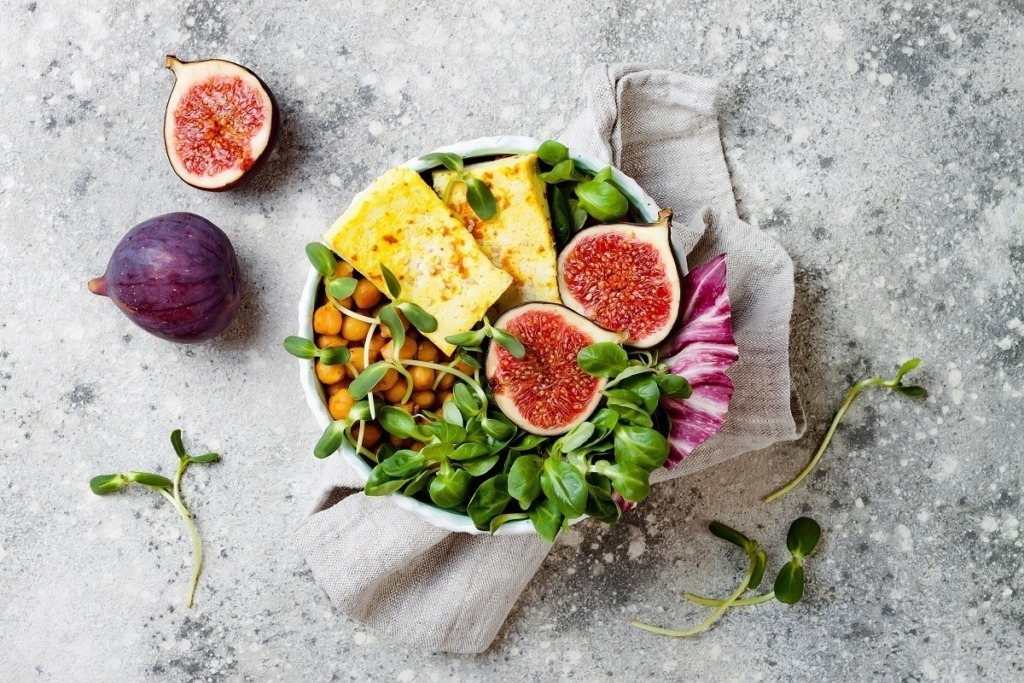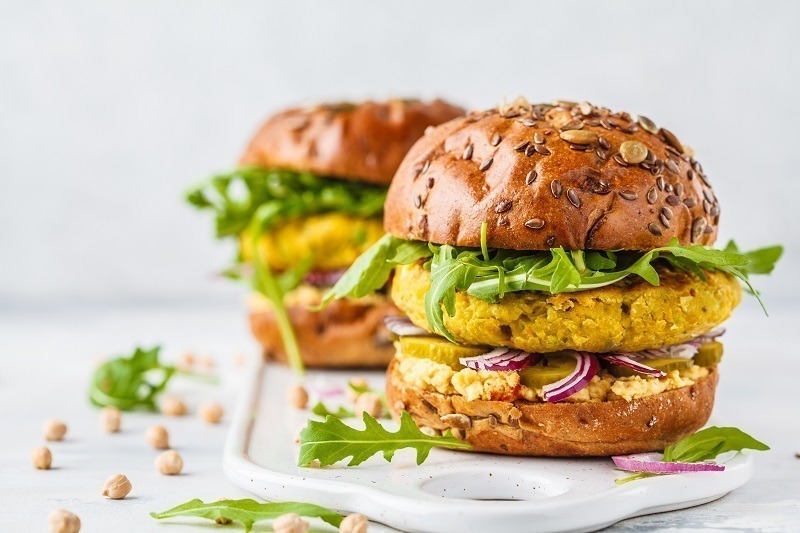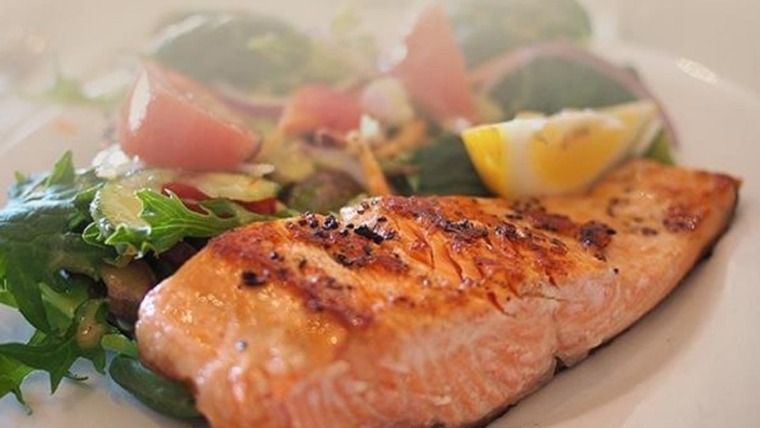
VEGAN VS PLANT BASED
Written by Aida Rejzovic
Despite what you may initially think, there are differences in vegan and plant based diets. While both diets exclude animal products, the beliefs and core motivations behind the diets differ.
A vegan diet is motivated by animal welfare, excluding from the diet all animal foods including animal by products such as honey. This also extends to clothing, shoes, skincare etc, with no leather, wool or silk to be worn, and no animal products or animal testing for skin, beauty and household products. Following a vegan diet does not automatically mean a healthy diet, as technically you could live off French fries and pasta and still call yourself a vegan.
A plant-based diet is motivated by its health benefits and what goes into the body rather than what goes on it. For example, a plant-based diet does not eat meat, dairy, eggs or seafood, but may wear a leather jacket or leather shoes. The main factors contributing to a plant-based diet are health and longevity.
For health and animal conscious individuals, a vegan whole foods diet excludes animal products, instead focussing on healthy whole grains and pulses, lots of vegetables and fruits and healthy fats from nuts, seeds, avocado, olive oil and coconut oil.
NUTRITIONAL REQUIREMENTS
When choosing to go vegan or plant based, there are a few key nutrients that need to be carefully considered to avoid nutrient deficiencies. This is because some nutrients are only found in animal products, while others are found in lesser amounts in plant-based sources, so special care needs to be taken to ensure these nutrients are included in the diet. They are iron, B12, zinc, calcium, protein and omega 3.
Iron
Iron is a mineral that the body needs for growth and development. Iron comes in two forms, heme iron (from animal sources) and non heme iron (from plant sources). Non heme iron is harder for the body to absorb than heme iron and requires vitamin C to assist in the absorption. Because plant sources of iron are harder to absorb than animal sources, a variety of iron-rich foods need to be consumed to maintain sufficient iron levels. Vegan dietary sources of iron include white, black, lima and kidney beans, lentils, peas, chickpeas, spinach, tofu, tempeh and blackstrap molasses.
For women and adolescent girls especially, getting enough iron in the diet can be difficult, and using dietary supplements is sometimes necessary even with a balanced diet.
Vitamin B12
Vitamin B12 is an essential vitamin found in animal based foods. Vitamin B12 is required for proper red blood cell formation, as well as acting as a cofactor for many other metabolic and neurological functions. For strict vegans, supplementing the diet with fortified foods such as fortified nutritional yeast (also called brewer’s yeast) and taking a regular vitamin B12 supplement is essential to maintain health and energy levels.

Zinc
An essential mineral, zinc is a cofactor for hundreds of metabolic and neurological functions, as well as being used in the skin and connective tissues. Zinc deficiency may lead to mood disorders such as depression and anxiety, poor skin and wound healing, poor nail and hair quality and lowered immune function. Zinc is found in highest amounts in seafood, meat and poultry, but vegan sources of zinc can be found in smaller amounts in nuts, seeds and legumes, with pumpkin seeds, in particular, containing a good amount of zinc. The process of soaking and rinsing nuts, seeds and legumes before consuming helps to increase mineral bioavailability for better nutrient absorption.
Calcium
Calcium is an essential mineral required for the normal development and maintenance of bones and connective tissues as well as for the proper functioning of muscles. Dietary calcium during childhood and adolescents is particularly important, as this is when the body lays down calcium stores that will impact bone health in later life. While most people associate calcium with dairy, you can also get calcium from plant based foods. These include almonds, leafy green vegetables such as spinach and kale, broccoli, tofu and sesame seeds or tahini.
Protein
While most people associate protein with sports and muscle building, the amino acids found in protein containing foods are also essential for cognitive function, mood regulation, digestive health and many other physiological functions. To maintain sufficient protein levels following a vegan diet, it is important to include a variety of plant based protein sources at every meal as well as snacks. Vegan and plant based sources of protein include nuts, seeds, brown rice, tofu and pulses such as lentils, chickpeas, peas and beans such a kidney, black, fava, mung and lima beans.
Omega-3
Omega-3 is an essential fat that forms part of the structure of our cells including grey matter in the brain. As omega 3 levels are entirely dependent on dietary intake, a diet lacking in omega-3 can cause poor memory, depression and increased anxiety, dry skin or eczema, and a lowered immune system. Vegan sources of omega 3 are found in flax seeds and flaxseed oil, hemp seeds and hemp seed oil, and marine algae such as kelp, spirulina and phytoplankton.
ETHICS & ANIMAL WELFARE
The choice to live a vegan lifestyle is one of kindness and respect towards all living creatures. While one may argue that 'humans are designed to eat meat', unfortunately, today's meat industry is truly horrifying. While our ancestors may have hunted free roaming animals, the truth is that most animals in today's world are held in terrible conditions and subject to a life of misery and pain. And while some may believe that physiologically humans are designed to eat meat, the modern world also offers an array of different health foods and supplements to obtain all the nutrients one needs without having to eat animal products.
The choice to live a vegan or plant based diet may not be for everyone, and both sides need to respect each other’s beliefs. What is most important is that we are informed, educated and respectful. If you or someone close to you chooses to live a vegan or plant based lifestyle, make sure you educate yourself on basic nutrition and make sure the diet contains a good variety of healthy foods to maintain essential nutrient levels.
LEARNING & SUPPORT
Choosing a new way of life can be isolating, especially if there is not support from loved ones. Joining communities such as Facebook groups is a great tool to network with like minded individuals and gain knowledge and helpful lifestyle tips. It is important to remember though that the advice online may not always be correct, so you should do your own research and speak with a qualified nutrition professional.
A Plant-Based A Plant-Based A Plant-Based



